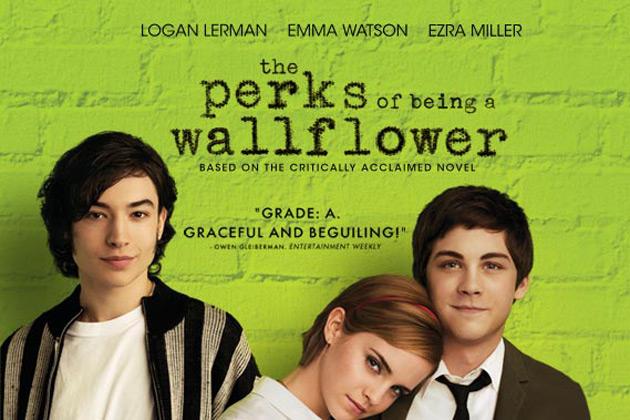Movie Mondays 6: The Perks of Being A Wallflower (2012)
Stephen Chbosky has created The Breakfast Club for a new generation, capturing some of the more modern troubles of teen life in a way that no other film has.
This is a story about people. About their lives, our lives, our past, our present, and our future.
I was shocked to find this film categorized as a ‘romance’ genre film, because while a romance is a large part of the film, it is purely one brushstroke in a much larger painting. It’s just like how The Shawshank Redemption is not about prison life, but about people. The prison serves as a background for the characters and the story about humanity and hope in the face of adversity. In The Perks of Being A Wallflower, the romance serves to flesh out characters in a story that is ultimately about them, about people.
Calling this film a ‘romance’ is a little insulting, because it misleads people into thinking that the film is akin to 16 Candles or High School Musical. I can assure you that it’s not. This film is dark, tackling controversial subjects like homosexuality, drugs, psychological issues, and repressed memories, to name a few. The last major motion picture to discuss the same topics as powerfully was The Breakfast Club directed by John Hughes. And while The Breakfast Club does address many of the same teen angst issues that this film does, such as suicide, not fitting in, and abusive relationships, it does so by cloaking the matters in a veil of comedy and lightheartedness. This may have worked to soften the blow that such topics could have had on audiences of the time, which it does very well. The Perks of Being A Wallflower, on the other hand, tackles such subjects head-on.
Based on the novel of the same name by Stephen Chbosky, who also wrote the screenplay and directed the film, the movie succeeds not only on its own, but as an adaptation of an already profound novel. I read the novel before watching the film when it came out, and while I don’t remember it too well, I do remember that the novel was similar to the film, but not exactly the same. This is by no means a bad thing, as some things in novels are difficult– if not impossible– to translate to the screen. However, the film definitely stands on its own, no prior reading required.
If there is a downside to this film, it would be that it does its job too well. A somewhat somber film, The Perks of Being a Wallflower can be very depressing at times.
Perhaps that is what Hughes was trying to avoid when he laced The Breakfast Club with comedy. Even the scenes with Charlie’s seemingly normal and happy family manage to put a weight on the audience’s shoulders. The amount of empathy the viewer develops for each of the characters is incredible; everything that happens to them hits you hard.
With the amount of troubles on and around Charlie, some may get a sense that the writer is just trying to cram as many hardships onto this teen as possible, to make his story all the more sad. But all of the events and problems in the film serve to further the story and more importantly, tell the audience things about the various characters.
After you watch this film, which you most definitely should, I would recommend the novel as well. If you’re an adventurous sort, perhaps even try reading the book before seeing the film. The characters are somehow even more real if the viewer already knows a bit about them before watching them come alive on the screen.
The Perks of Being a Wallflower will undoubtedly leave you with pangs of sadness. But I can’t say that the melancholy notes take away from the overall architecture of the film. After all, in the words of Kathy Nightingale from one of the best Dr. Who episodes ever, sad is just “happy for deep people.”

Hi, I'm Sam Falconer. I'm a senior this year, so, yeah. Anyway, I am a film connoisseur and an avid reader and writer. I am also a lover of all things...

















































































![Senior Ditch Day... Relaxation or Truancy? [Video]](https://achsstinger.com/wp-content/uploads/2017/10/IMG_7119-900x599.jpg)
![Heavy Rain Hits Cam High [video]](https://achsstinger.com/wp-content/uploads/2017/02/maxresdefault-900x506.jpg)




David Dugan • Apr 28, 2015 at 2:41 pm
nice job. maybe try mentioning Emma Watson next time. -Greg